An Interview with Kelly Gay: A USA TODAY Bestselling Novelist and Author of Halo: Epitaph
Kelly has written several of the best Halo novels in recent years - now I get to ask her a few questions about her latest.
It’s wild to be a nerd who has read an author’s work for years and then gets a chance to interview them. It’s surreal, honestly. I have read Kelly’s Halo books since she wrote her first one, Smoke and Shadow, in 2017. She went on to write Renegades, Point of Light, and The Rubicon Protocol. Along with Karen Traviss, Kelly is someone whose contribution to the “new era” of Halo is top tier fiction. When 343 took over the Halo franchise, they continued to make sure that the books were still as important (if not more) to the legacy of the franchise. As a video game novel nerd, I’m happy that we still get these books every couple of years.
Kelly Gay is also responsible for the Charlie Madigan series where a police officer deals with paranormal worlds while also being a single mother.
Simon and Schuster helped me reach Kelly for a few questions surrounding her latest novel in the Halo franchise - Halo: Epitaph. I reviewed Epitaph recently and absolutely loved it. It is a book for fans of the deeper lore of the series and one of the best send offs to a complicated character. The Didact is neither hero or villain and I think Kelly does a great job sympathizing with The Didact as much as we hold him accountable.
Enjoy the several questions I asked Kelly as a fan of her and the franchise she contributes to.
Jesse: Greg Bear was a fundamental part of the Forerunner lore for Halo and someone who clearly influenced you. Bear's Forerunner trilogy, a highly complex and intelligent expansion on the lore of Halo, ties into the Rion Forge books you have previously written for the franchise. Halo: Epitaph is a culmination of Bear's and your work – can you speak to the dynamic between Bear and yourself.
Kelly: I’ve always been such a fan of Greg’s writing. He knew when to stay with a scene and when to move on, and he was able to relay so much to the reader with just one sentence. He could describe a complicated idea or scene with such brevity while making you feel completely immersed and as though you had missed nothing. I feel a connection there, in terms of my own writing style. From my earliest works and onward, my goal is always to write with that same kind of brevity while also delivering everything the reader needs to know. I didn’t know Greg personally, so I can’t speak to how he felt about the lore, but he showed such care and such a broad creativity in his dealings with the Forerunners that I feel as though he and I might have had a lot of interesting conversations about and similar feelings toward the mythos.
Jesse: Halo: Epitaph feels like a final farewell to one of the more complicated, endearing, magnetic and destructive characters in the Halo lore. I feel like you have appropriately put a bow on the Didact's arc – a final goodbye we never were able to have, as fans. In a lot of ways Halo: Epitaph feels like a final farewell to both Greg Bear and the Didact. Was this an emotional farewell for you as well?
Kelly: Yes, of course. I knew it was a farewell in many respects going in, but it was through the writing of the story itself that the emotions really came. For instance, I knew from the outset that I wanted to write some kind of dedication to Greg at the beginning of Epitaph (and that I would be speaking not just for myself but for so many of his fans), but I struggled and none of what I wrote seemed right. I gave up and started the book, hoping the right words might come at some point. As the Didact moved toward his conclusion and his own farewell, the words did indeed come, and they felt impactful and definitely got me emotional. I don’t know if they ring the same to others, but hopefully they relay the respect myself and others have for what Greg accomplished. I hope we gave proper closure to things and did right by Greg and the Didact.
Jesse: I always found the Didact's story to be a love story at the heart of it. His love and compassion for The Librarian, his wife, always at odds with his acts of genocide and brutality even if for the greater "good" of the universe. I feel like you also see that given the way the narrative evolves in Halo: Epitaph. A monster in love is really the saddest tale but I feel hopeful for the Didact – how do you feel about that?
Kelly: The love the Didact has for the Librarian is definitely a major part of his life story for sure. I’ve always believed him to be naturally good at heart, but he knew that in order to protect those he cared about and create positive outcomes in the galaxy, he needed to gain and hold power. It was a simple necessity in order to rise in rank, and to ultimately do and to keep the job of Protector of the Ecumene, and to stay one step ahead of those in the Council whose influence was growing—those who did not have the best interest of the ecumene at heart. But the more he gained, the harder life became, his responsibilities grew, he was pulled in so many directions, and once, where he and his wife’s goals and hopes aligned, they began to drift apart. And then the Forerunner-Human War took their children, they suffered loss, humanity came between them, the Didact met the Primordial, and the divide between them continued to grow… I feel like even at his worst, even when he felt hatred toward his wife, he still cared for her, and that is a measure of just how strongly he loves her. He always loved her, and he loves her still.
Jesse: Structurally, most Halo books are based around an objective or a singular event with characters investigating. Halo: Epitaph in a lot of ways rejects some of the more traditional storytelling in the franchise. We spend time with the Didact as he examines his incredible life, his actions, and his relationships with others. It's a pensive book with rumination rather than action – was this a conscious choice or a structure that developed?
Kelly: The structure does begin with a more passive quality in the beginning, and that was by design. Chapters 2-4 especially were necessary to take readers back through the lore that’s already been told in order to get everyone up to speed and on the same page before proceeding with the story. But once we end chapter 4, the story then takes on a more active role. With the spire in the distance, the Didact has a real, tangible goal. And when he sees Cortana at the gate, his goal then changes, and he makes active steps from then on in order to achieve those goals. There are many action scenes from there on out, mingled with scenes or memories from the Didact’s past.
Jesse: I find that The Didact and Cortana are similar in their values and reasoning. They both want to achieve a peaceful galaxy with extreme and questionable methods. Once again, a type of love is at the center of their struggle – do you also feel they are comparable?
Kelly: Yeah, I think they possess a lot of similarities. I imagine the early Didact as he advanced through the war college and began his relationship with the Librarian held similar hopes and values and a general lightness of being that somewhat mirrored early Cortana. But there are also similarities between the Didact and Master Chief as well. And, though their paths were different, all three were instruments of war, and thus comparable in that way as well.
Jesse: Is there any part of the Halo franchise you hope to explore?
Kelly: Oh gosh. Yes! :D Lots of areas. I’m always interested in continuing Rion Forge’s story, and in exploring the mythos and lore of any Halo civilization—all things mysterious and as yet to be told, but I also love the down and dirty, in the trenches type missions that we saw in previous Halo games and now those we have on Zeta Halo pre and post Infinite.
Jesse: Your love for mythology has greatly influenced your work. Is that why you have worked with the Forerunner mythos for so long?
Kelly: Just one of the reasons, absolutely. That, and the mythos itself is not contained to one or two storylines. It covers vast amounts of time and space, and there is so much yet untold, which keeps me hooked.
Jesse: If you could sit down with the Didact and talk about anything, what would it be?
Kelly: The Didact has been through hell; we have seen him at his worst, seen his entire civilization fall, and seen his great suffering and pain. It would be nice to just sit and listen to him talk of happier times, to hear funny stories of his time at the war college, of falling for the Librarian, their adventures together before they had children, and then the fun times after.
I hope you enjoyed my interview with Kelly Gay. You can find out more about her on her Publisher Page and if you missed it, here is my review of Epitaph.




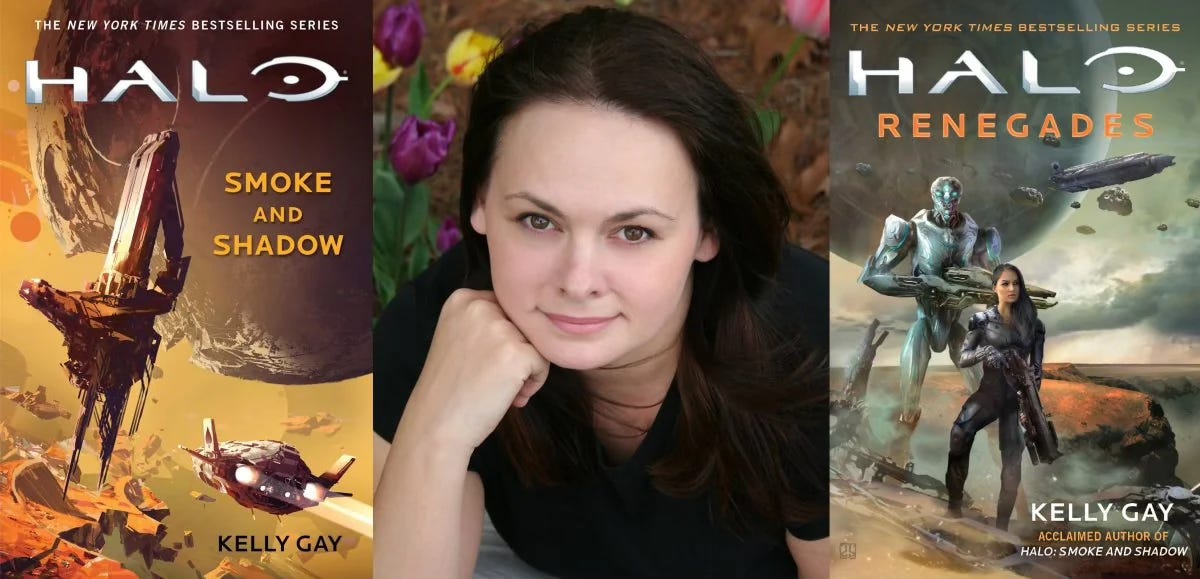

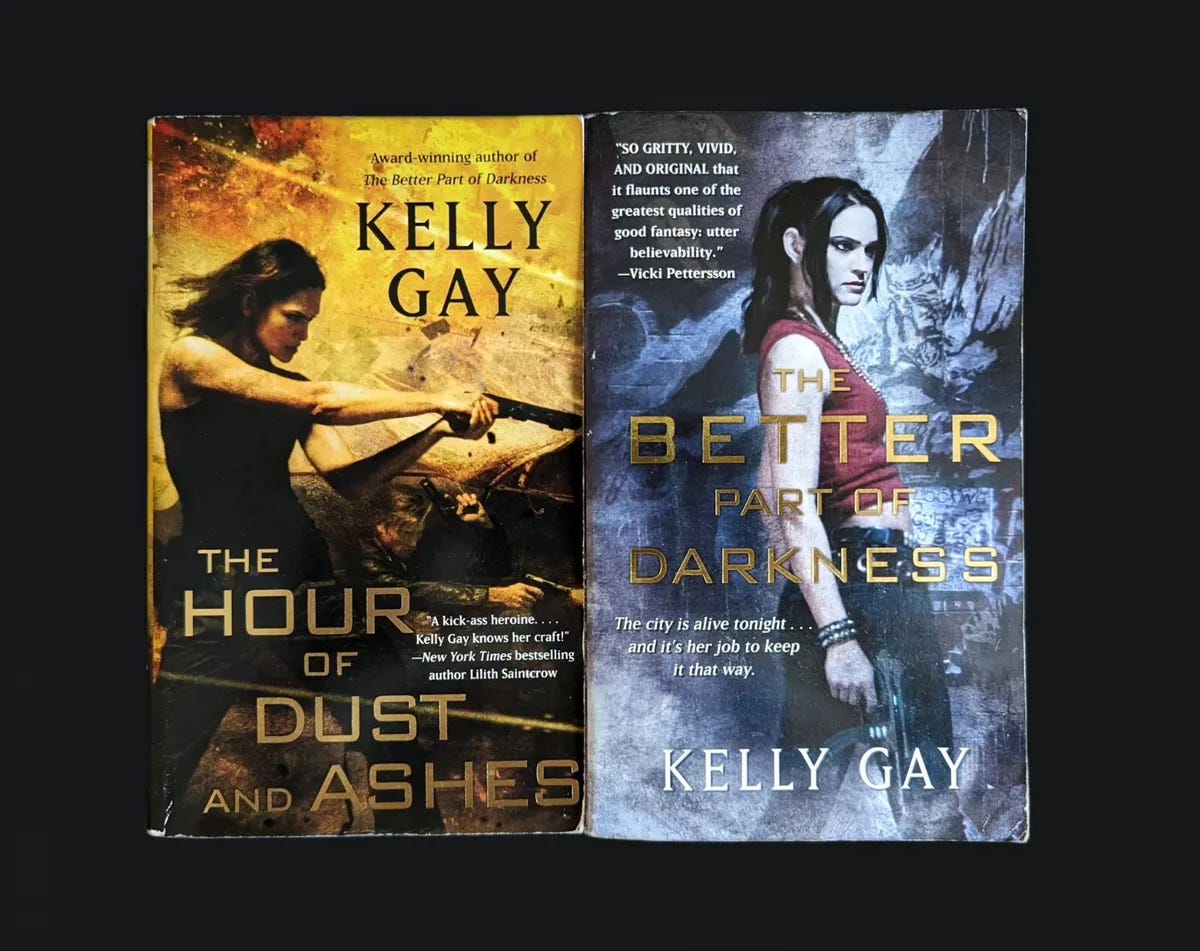

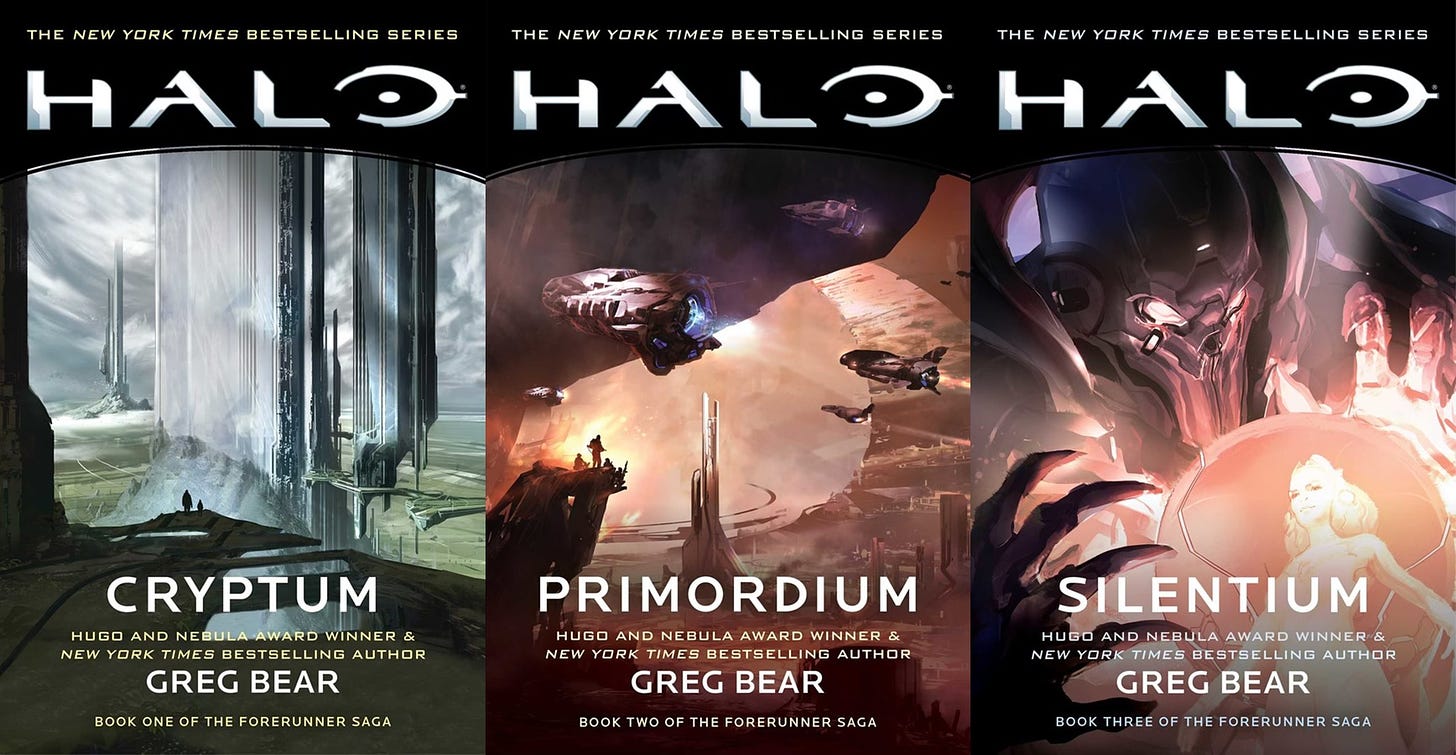
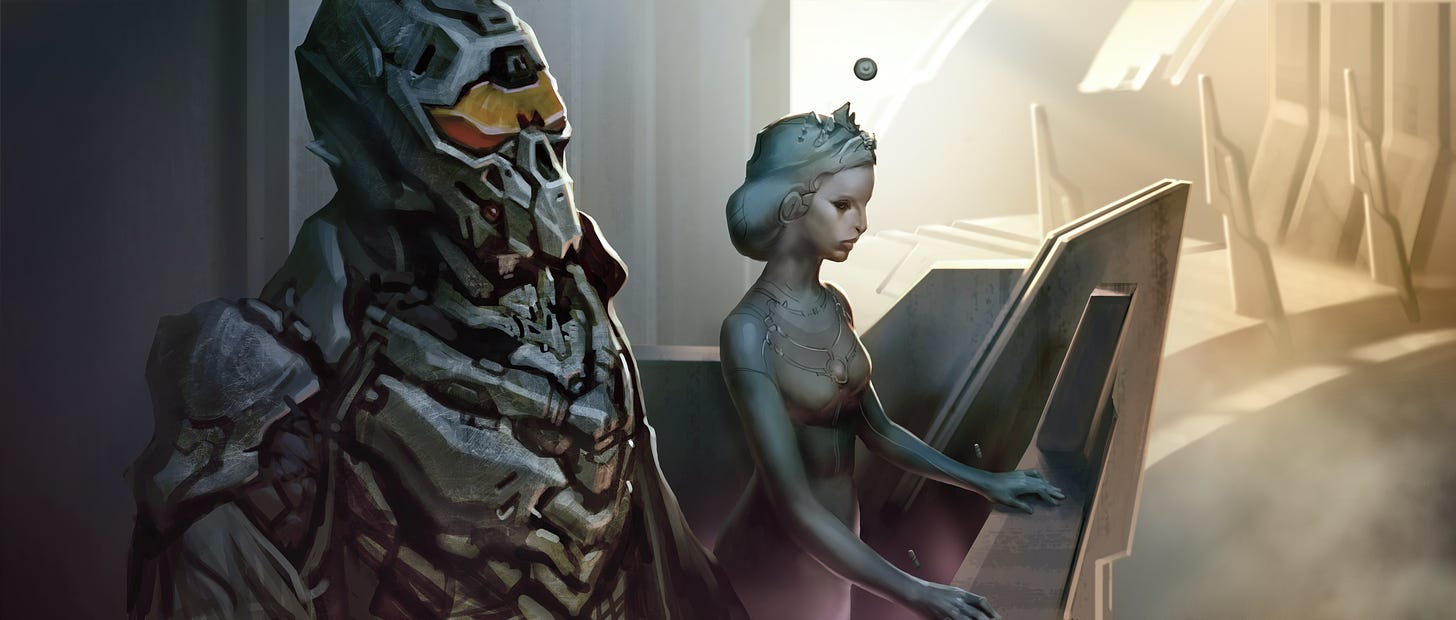
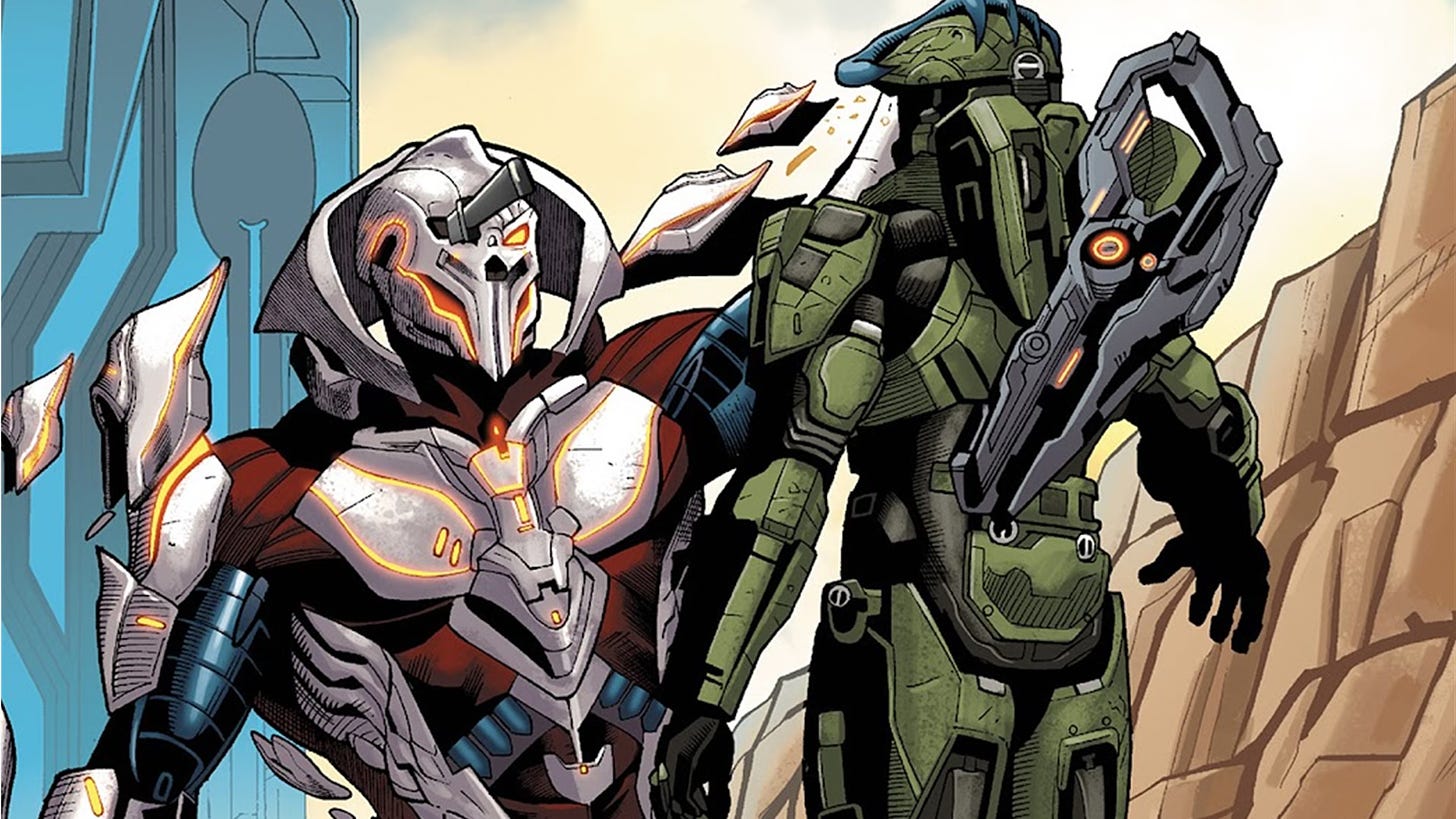
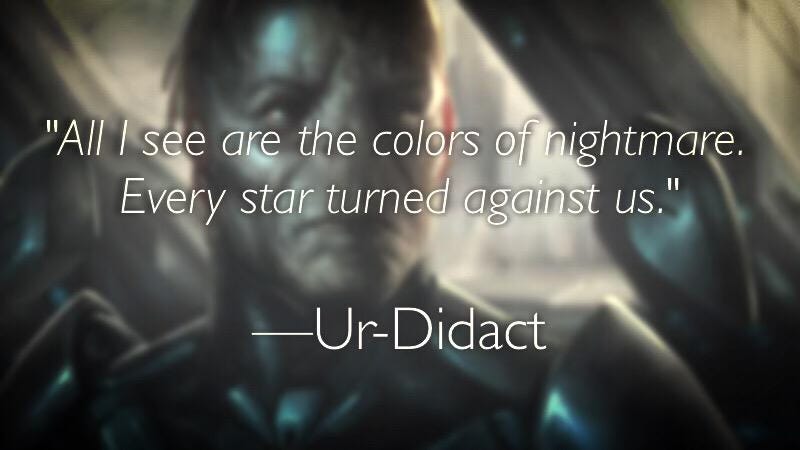
Great interview!